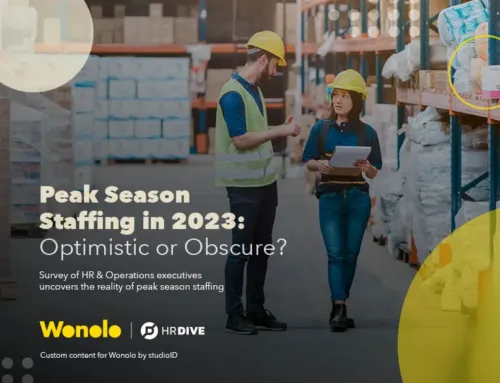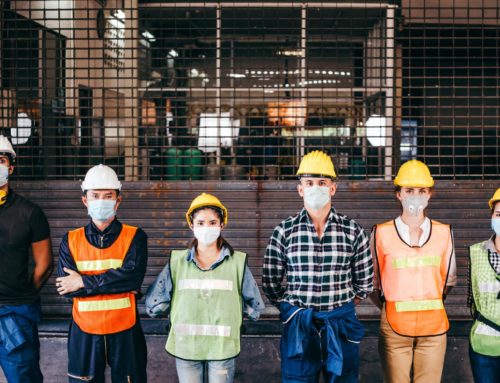Yong Kim
The success of Prop. 22 shows what I have long believed: the binary worker classifications in place, 1099 vs. W2, are not what today’s contingent workers want or need. Prop. 22 is a win for workers who choose to be independent contractors and ensures they can continue to enjoy the flexibility that’s inherent in providing services via certain platforms (e.g., Uber, Lyft, DoorDash, and Instacart).
The success of Prop. 22 is a reminder that flexibility is critical to many workers:
Flexibility is an important value for many workers and for the entire economy– a value made clear by the COVID-19 pandemic.
Essential businesses (including many customers who use Wonolo) saw such a spike in demand they were able to meet only through connecting with workers who were suddenly seeking new, flexible opportunities.
This point is critical – so forgive me for trying to explain it in a different way. With non-essential businesses shuttered during lockdowns, daycares and schools closed, and families unable to get together for fear of spreading COVID-19, the number of people engaged in traditional, inflexible employment plummeted by historic levels and many parents couldn’t get the help they needed to keep the jobs they’d had.
However, as we all saw, independent workers who use Wonolo or otherwise hustle were able to pivot and flexibly find new work all while maintaining complete discretion over what work they would perform, where they would do that work, when and how often they would work, and how much they were willing to accept for that work.
In sum, independent workers – just like businesses – have continued to flex during these times and that flexibility has mitigated the shock and loss precipitated by the historic economic collapse that businesses and workers alike continue to experience during this challenging recovery.
The success of Prop. 22 also points to the need for a third-worker category:
The success of Prop. 22 also demonstrates that a binary ‘employee or independent contractor’ classification system fails to meet the needs of a very large and growing contingent of workers in this country. The passage of Prop 22 should (and, we hope, will) give pause to other states considering laws similar to AB-5.
Instead, we hope that legislators, regulators, and policy advocates will pursue solutions (instead of draconian frameworks and patchwork exemptions) that will support the flexibility that, from day one, has been central to Wonolo’s mission while also ensuring that independent work will be fulfilling (by, e.g., paying a living wage).
Still, the fight over Prop. 22 is a reminder that companies like Wonolo have a role to play in helping workers get access to good paying jobs and to portable benefits. Wonolo has made strides on both these points – already the bulk of the jobs on our platform pay at or above the local living wage and we’re proud supporters of the Massachusetts Institute of Technology Living Wage Calculator. We also connect workers using Wonolo with a range of benefits, including Flex Paid Time Off, health insurance, dental insurance, tax support, and more.
The success of Prop. 22 doesn’t change Wonolo’s decision to leave California earlier this year. We will continue to focus instead on providing economic opportunity to workers and businesses in other states.
Looking ahead…
My team and I intend to continue to engage policymakers in the weeks and months ahead on this topic. Contingent workers – those who seek and provide flexible services – are an essential part of the U.S. economy and laws that make it harder for them to succeed will harm our country’s economic future. Ultimately, as I’ve said before, we want to give blue collar workers–whether they are just starting out or looking for a second chance–the opportunity to succeed.


![[Report] Beyond the Gig: Exploring Reliable Work Options for the Modern Workforce](https://info.wonolo.com/wp-content/uploads/2023/10/Worker-Preferences-Report-Header-Image-500x383.png)



